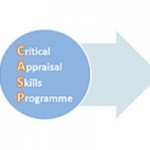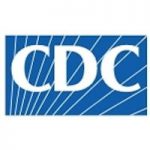
Informed Health Choices Primary School Resources
A textbook and a teachers’ guide for 10 to 12-year-olds. The textbook includes a comic, exercises and classroom activities.
| 0 Comments | Evaluated
Ebm@school – a curriculum of critical health literacy for secondary school students
A curriculum based on the concept of evidence-based medicine, which consists of six modules.
| 0 Comments | Evaluated
Know Your Chances
This book has been shown in two randomized trials to improve peoples' understanding of risk in the context of health care choices.
| 0 Comments | Evaluated
McMaster Evidence-Based Clinical Practice Workshop Resources – Therapy module
This is the therapy module resources provided to the attendees at the McMaster Evidence-Based Clinical Practice Workshop.
| 0 Comments
McMaster Evidence-Based Clinical Practice Workshop Resources – Systematic review module
The Systematic review module resources provided to the attendees at the McMaster Evidence-Based Clinical Practice Workshop.
| 0 Comments
Blinding in clinical trials and other studies
Simon Day and Doug Altman discuss blinding in clinical trials.
| 0 Comments
The interpretation of clinical trials
Peter Greenberg’s 9-minute read on the interpretation of clinical trials.
| 0 Comments
Evidence Based Drug Therapy: What Do the Numbers Mean?
Strengths and limitations of different measures of the effects of treatments.
| 0 Comments

The DIY evaluation guide
The Educational Endowment Foundation’s DIY Evaluation Guide for teachers introduces the key principles of educational evaluation.
| 0 Comments
Using research evidence: a practice guide
NESTA’s guide to using research evidence to inform decisions in policy and practice.
| 0 Comments
Understanding Health Research: are some types of evidence better than others?
Understanding Health Research, a tool for making sense of health studies: are some types of evidence better than others?
| 0 Comments
Assessing Risk of Bias in Included Studies
An introduction to assessing risk of bias using the Cochrane ‘Risk of Bias Tool’.
| 0 Comments
Reading the Medical literature
American College of Obstetricians and Gynaecologists (ACOG) introduction to critical appraisal and evidence-based medicine.
| 0 Comments
University of Western Australia: Bias Minimisation, randomisation and blinding
University of Western Australia’s explanation of why random allocation to comparison groups and blinding (if possible) are important.
| 0 Comments
Sun Downstate; The Double Blind Method
Suny Downstate’s explanation of why blinding is important in assessing the effects of treatments.
| 0 Comments
What is a meta-analysis? How to use a systematic review
Oxford University’s Centre for Evidence-Based Intervention guide on how to use evidence from systematic reviews.
| 0 Comments
Is the trial valid?
An article from the PEDro database on assessing the validity of a study.
| 0 Comments
Evidence-Based medicine in Pharmacy Practice
An article by Suzanne Albrecht on Evidence-Based Medicine in Pharmacy Practice.
| 0 Comments
Evaluating relevance
How to evaluate relevance of research in Michigan State University’s Evidence-Based Medicine Course.
| 0 Comments
Evaluating the validity of a therapy study
A web-based Duke University tutorial explaining how to address the question: are the results of the study valid?
| 0 Comments
Randomisation explained in 1 minute
A 1 minute animation produced by Cancer Research UK, explaining the term ‘randomised trial’.
| 0 Comments
Teaching Tips: randomisation for trials
Chris Del Mar describes a group exercise that enables students to appreciate how trials work, and how they can go wrong.
| 0 Comments
How can you know if the spoon works?
Short, small group exercise on how to design a fair comparison using the "claim" that a spoon helps retain the bubbles in champagne.
| 0 Comments

Teach Yourself Cochrane
Tells the story behind Cochrane and the challenges finding good quality evidence to produce reliable systematic reviews.
| 3 Comments
Building evidence into education
Ben Goldacre explains why appropriate infrastructure is need to do clinical trials of sufficient rigour and size to yield reliable results.
| 0 Comments
Bias – the biggest enemy
University of New South Wales Medical Stats Online Tutorial 5 addresses ‘Bias - the biggest enemy’.
| 0 Comments
Generation R – Pictionary research activity
GenerationR’s version of Pictionary using research concepts instead of usual game cards, allocated in different levels of difficulty.
| 0 Comments
Generation R – Clinical trials card-sorting exercise
Card-sorting exercise developed by GenerationR to familiarise children and young people with jargon terms used by clinical researchers.
| 0 Comments
Basic principles of randomised trials, and validity
A 8-min talk on ‘Basic principles of Randomised Trials, and Validity’, illustrated by 15 slides, with notes.
| 0 Comments
The power of the placebo effect
Emma Bryce’s video presents information about placebo effects: treatments not supposed to have an effect but which make people feel better.
| 0 Comments
Detectives in the classroom
Five modules of materials for promoting epidemiology among high school students.
| 0 Comments
Not all scientific studies are created equally
David Schwartz dissects two types of studies that scientists use, illuminating why you should always approach claims with a critical eye.
| 1 Comment
10 Components of effective clinical epidemiology: How to get started
PDF & Podcast of 1-hr talk by Carl Heneghan (Centre for Evidence-Based Medicine, Oxford) on effective clinical epidemiology.
| 0 Comments
Caffeine Soft Drinks affect Human Heart Rate. Lesson Plan
A lesson to illustrate how medical researchers study the effects of drugs on people.
| 0 Comments
Explaining the unbiased creation of treatment comparison groups and blinded outcome assessment
A class were given coloured sweets and asked to design an experiment to find out whether red sweets helped children to think more quickly.
| 0 Comments
Systematic Reviews and Meta-analysis: Information Overload
None of us can keep up with the sheer volume of material published in medical journals each week.
| 0 Comments
Defining Bias
This blog explains what is meant by ‘bias’ in research, focusing particularly on attrition bias and detection bias.
| 0 Comments
Making sense of randomized trials
A description of how clinical trials are constructed and analysed to ensure they provide fair comparisons of treatments.
| 0 Comments
Randomized Control Trials
1/2, 40-min lecture on randomized trials by Dr R Ramakrishnan (Lecture 25) for the Central Coordinated Bioethics Programme in India.
| 0 Comments
Randomised Control Trials – CASP
This module looks at the critical appraisal of randomised trials.
| 0 Comments
Why avoiding differences between treatments allocated and treatments received is important
Knowledge of which treatments have been received by which study participants can affect adherence to assigned treatments and result in bias.
| 0 Comments
The need to avoid differences in the way treatment outcomes are assessed
Biased treatment outcome assessment can result if people know which participants have received which treatments.
| 0 Comments
Bias introduced after looking at study results
Biases can be introduced when knowledge of the results of studies influences analysis and reporting decisions.
| 0 Comments
Interactive PowerPoint Presentation about Clinical Trials
An interactive Powerpoint presentation for people thinking about participating in a clinical trial or interested in learning about them.
| 0 Comments
Cecil and those pellets again…
If possible, participants in clinical trials should not know which treatment they are receiving.
| 0 Comments
Lisa luxuriant hair
If possible, participants in clinical trials should not know which treatment they are receiving.
| 0 Comments
Introduction to clinical trials: lay-friendly video
This lay-friendly video introduction to clinical trials was created by the European Communication on Research Awareness Needs Project.
| 3 Comments
Overview of study designs
11 slides and a 4-min commentary overviewing study designs for clinical research. (from Univ Mass Med School).
| 1 Comment
Drug trials in healthy volunteers
A 6-minute video illustrating an early phase clinical trial in healthy volunteers.
| 0 Comments
How are medicinal drugs tested?
A group of text files for teaching students about how medicinal drugs are tested.
| 0 Comments
Double blind studies
A webpage discussing the importance of blinding trial participants and researchers to intervention allocation.
| 0 Comments
CEBM – Study Designs
A short article explaining the relative strengths and weaknesses of different types of study design for assessing treatment effects.
| 0 Comments
Introduction to Critical Appraisal
30-slide introduction by Jason Curtis, to Critical Appraisal.
| 0 Comments
Randomized Controlled Trial Protocols
A 1-hour videoed lecture explaining protocols for Randomized Control Trials (RCTs).
| 0 Comments
Randomised Controlled Trials vs. Observational Studies
5-minute video explaining the difference between randomised trials and observational studies.
| 0 Comments
How do you know which healthcare research you can trust?
A detailed guide to study design, with learning objectives, explaining some sources of bias in health studies.
| 0 Comments
Smart Health Choices: making sense of health advice
The Smart Health Choices e-book explains how to make informed health decisions.
| 0 Comments
Methodology of clinical trials
Eurordis training on the methodology of clinical trials for representatives of patients’ organisations.
| 0 Comments
Evidence from Randomised Trials and Systematic Reviews
Dr Chris Cates' article discussing control of bias in randomised trials and explaining systematic reviews.
| 0 Comments
The Gold Standard: What are randomised control trials and why are they important?
A four minute video by the MRC Clinical Trials Unit about the importance of randomised control trials.
| 0 Comments
Lesson plan for teaching secondary school students about double-blind trials
This lesson plan provides resources to run stimulating activities about fair tests of treatments in a classroom setting.
| 0 Comments
Viva la Evidence!
A brilliant song and video by James McCormack explaining the basics of evidence-based medicine.
| 0 Comments
Therapeutic Touch: a schoolgirl shows how to test it
This 5-minute video provides an example of applying scientific method to dodgy treatment claims.
| 3 Comments
Fair measurement of treatment outcomes
Although one of the reasons for using sham treatments in treatment comparisons is to help patients and doctors to stick […]
| 2 Comments
Helping people to stick to allocated treatments
Differences between intended and actual treatments during treatment comparisons can happen in other ways that may complicate the interpretation of […]
| 2 Comments
Ways of using unbiased (random) allocation in treatment comparisons
Random allocation for treatment comparisons can be used in various ways. For example, it can be used to compare different […]
| 0 Comments
Unbiased, prospective allocation to different treatments
In 1854, Thomas Graham Balfour, an army doctor in charge of a military orphanage, showed how treatment groups could be […]
| 0 CommentsNo Resources Found
Try clearing your filters or selecting different ones.
